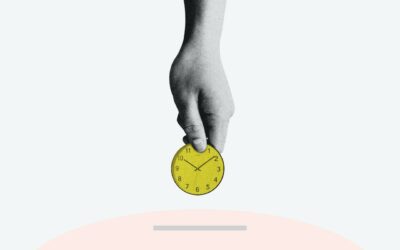Two weeks ago I had a plan. My future had an outline. I am a student in Michael and Amy Port’s Heroic Public Speaking grad school and I was scheduled to return to NYC in April for the fifth in-person session. Then I had the great honor to be invited to give two talks at the American Association of Thoracic Surgery in NYC at the end of April.
Every day I knew where I had to direct my attention – to my plan.
Like most of us, the plan is at least on hold, if not over.
Jocko Willink, the Navy Seal, often says “Problem? Good.” Problems can be viewed as opportunities, as they almost always are. The lockdown caused by the coronavirus has created opportunities to write, work on projects that were put on hold, learn a language, getting prepped for when this mess abates, all sorts of things. Great chances to direct your attention to something new.
Despite this “good,” by day eight of our home incarceration I started to the find business of directing my attention to be more difficult, for several reasons.
The first reason is the sudden lack of constraints. I had deadlines and dates and expectations I was being held to. Classic accountability material that is so effective for moving the needle forward.
The second reason is the number of choices before me. Without my previous constraints I now have endless number of options. Clean up my filing system. Garden. Write a book. Study Italian. Organize my closet. Work on a new talk. Create a protocol for the proper loading of dishes into the dishwasher that everyone will have to follow. I recommend the TED talk by Barry Schwartz, “The Paradox of Choice” for more on this topic.
And, as Robert Sapolsky outlines so well in his book, Behave, the more choices we have, the more our prefrontal cortex – the “decider” – has to work, which creates cognitive fatigue and the risk of a downward spiral into Netflix country.
The third reason is the ambient emotional state of the world. The normal energy of the world is gone. Today it is cloudy and rainy in Minneapolis. My dog walks feel lonely and isolated.
The fourth reason is the draw to the news and the financial markets. At the start of this mess, I found myself checking the news many times throughout the day, each time being yet another distraction from being present with my family, or whatever I was doing. But I soon realized that it was way more than just a distraction of my attention. It was often a derailment of my thinking and emotions into a thicket of fear and anxiety.
I realized I needed some new constraints to manage my attention in this new, but temporary, reality:
First, check news at most twice daily, once around 11 AM and possibly at 4-5 PM. When I do check the news, it is only to check the major headlines, and I restrict myself to the New York Times. I find the television channels to be too sensationalistic and upsetting. My only goal here is not to live with my head in the sand. If ever there was a time when acceptance is the order of the day, this is it. For me, reading the news constantly only makes it more difficult to accept the reality of this mess.
Second, write in my gratitude journal, do loving kindness meditation, and read in the morning with my coffee. Again, no news despite the gravitational pull of my eyes and brain to my iPhone.
Third, pay attention to paying attention to my wife and daughters, and others I encounter on my walks or at the grocery store, while being patient, non-reactive, and kind.
Fourth, focus on exercise with two walks per day, 2 stationary bike sessions, pushups, pull-ups, and weights everyday.
Fifth, continue to work on my talks and writing “as if.” As if they will once again be relevant, because they will be.
Some days are better than others. More than ever the daily habits of having the right intention, discipline, and commitment are critical to staying resilient, no matter what.
“Now That’s Interesting”
Ten years ago I was in my dorm bedroom, sitting on the bed, cross-legged, in the drug rehab center Hazelden, in the middle of f***ing...




I find the third item on your list: ” 3. pay attention to paying attention to my wife and daughters, and others I encounter on my walks or at the grocery store, while being patient, non-reactive, and kind” to be quite relative to us all. If we all had one kind word to say to each person we come in contact with. If we chose to respond differently to those little annoyances we encounter. Well worth our time.
Could not agree more Beth – it spreads, and improves everyone’s mood and day, including ours. Thanks for commenting!
Well stated. I just finished an exercise session with my 15 year old, we worked with a trainer in our converted barn respecting social distancing at all times. My 12 year old and I just finished a major project. FInd worms, feed to the baby checks to see if they like worms at this age. Successful expreiment! Observation: they love the worms but they had to be minced a bit first. THM the boys are seeing more of me than ever. My wife and I take more walks. I only operate on the most serious cases which I will do tomorrow.